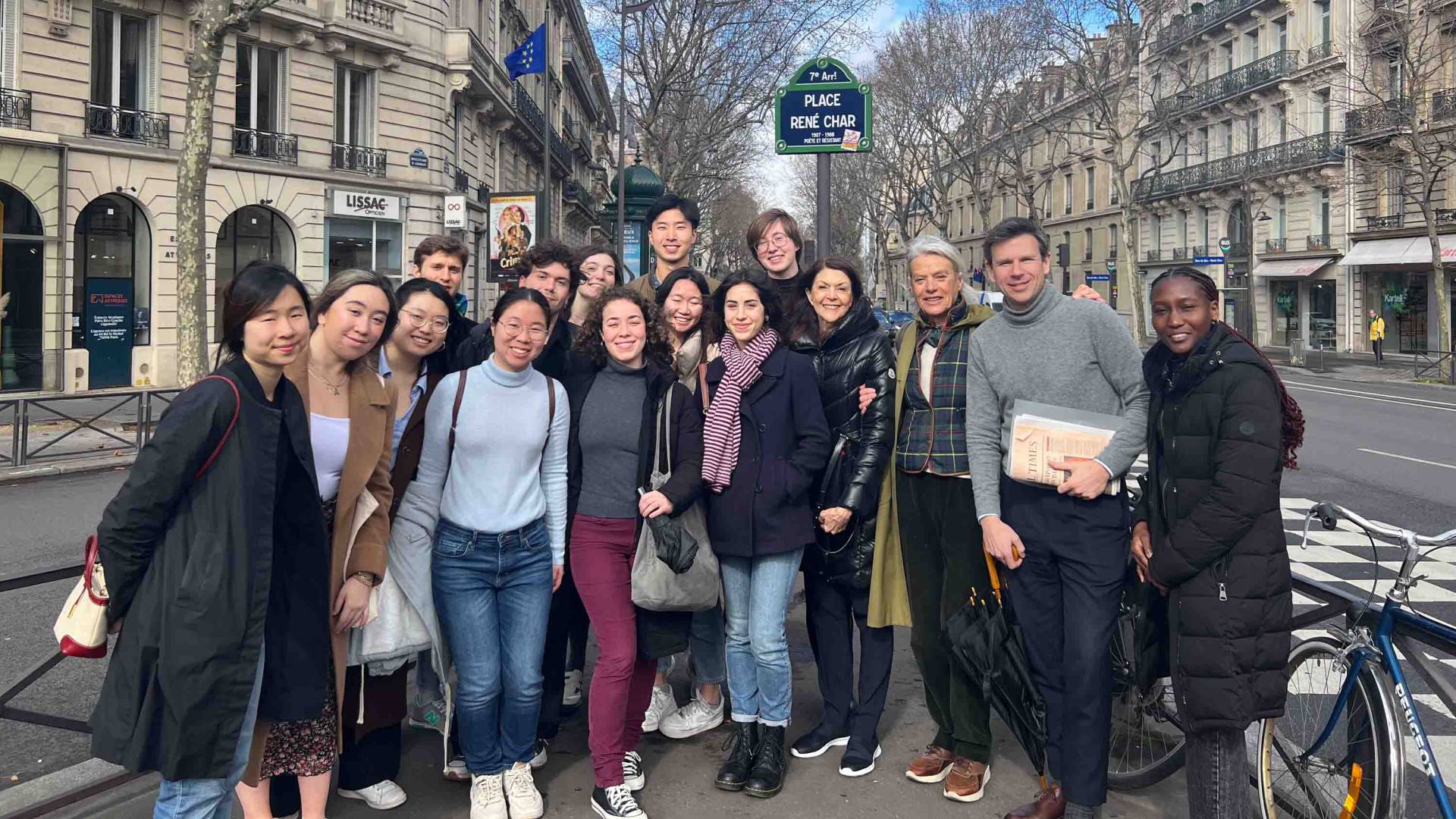When poet René Char joined the French Resistance against Nazi occupation of France in WWII, he led sections of the maquis, rural guerrilla units, in Provence, and orchestrated dangerous parachute landings of arms and munitions — all the while continuing to write poetry.After the war, in 1946, Albert Camus first published Char’s “Feuillets d’Hypnos” (“Leaves of Hypnos”), a “notebook” of 237 prose poems reflecting on the conflict but also on humanity, nature, freedom and hope.
This spring, students in the Humanities Council’s Program in Humanistic Studies course, “Poetry and War: Translating the Untranslatable,” explored Char’s poetry in its historical context and its ongoing “afterlife” in translations around the globe. They explored the Char Papers, held in Princeton University Library’s Special Collections. On a spring break trip to France, they met Char’s widow and editor, Marie-Claude Char, who guided them on a literary and historical journey exploring her husband as poet and Resistance leader. Back on campus, their work culminated in a dramatic public reading of the “notebook” in multiple languages, using the students’ own individual translations.
“Char’s poetry is powerful,” said Sandra Bermann, the Cotsen Professor in the Humanities and professor of comparative literature, in a story featured on the University homepage. “It engages deeply with human suffering, but also with the solace offered by dialogue, attentiveness to the people and things around us, and by poetry itself. Though its language is not always easy, changing registers throughout from the practical, to the lyrical, to the philosophical, his texts have been translated into more than 30 languages and have influenced writers and artists around the globe.”
Bermann, who will serve as a 2023-24 Old Dominion Professor in the Humanities Council, developed the course to dovetail with a book she is now writing on Char’s war-time poetry. It also connects closely with an international translation project she is leading, the Char Translation Project.
The course and the Char Translation Project are supported by a Humanities Council Magic Project, which encourages innovation in the humanities and works with faculty to develop experiential learning opportunities for students.
















